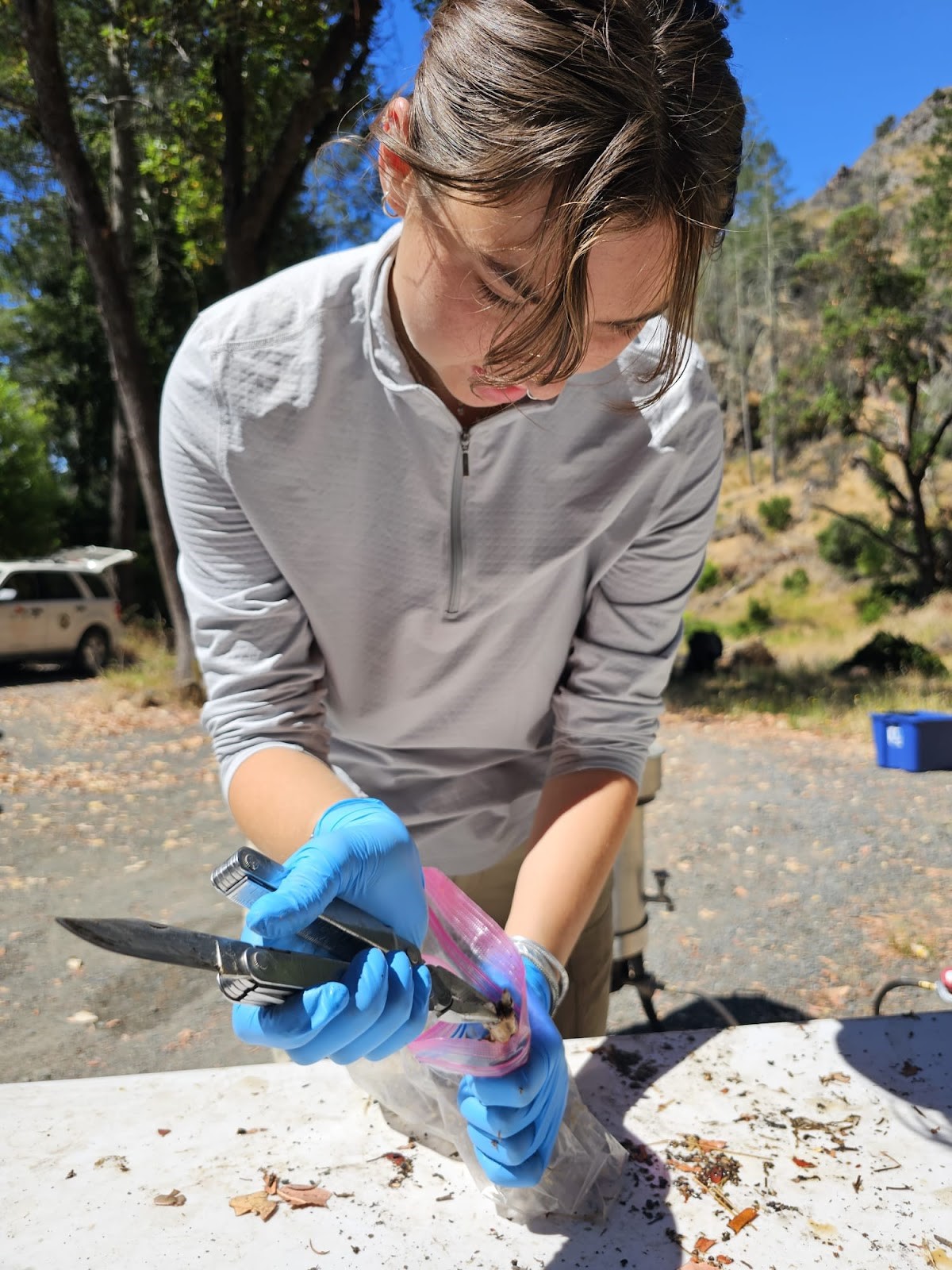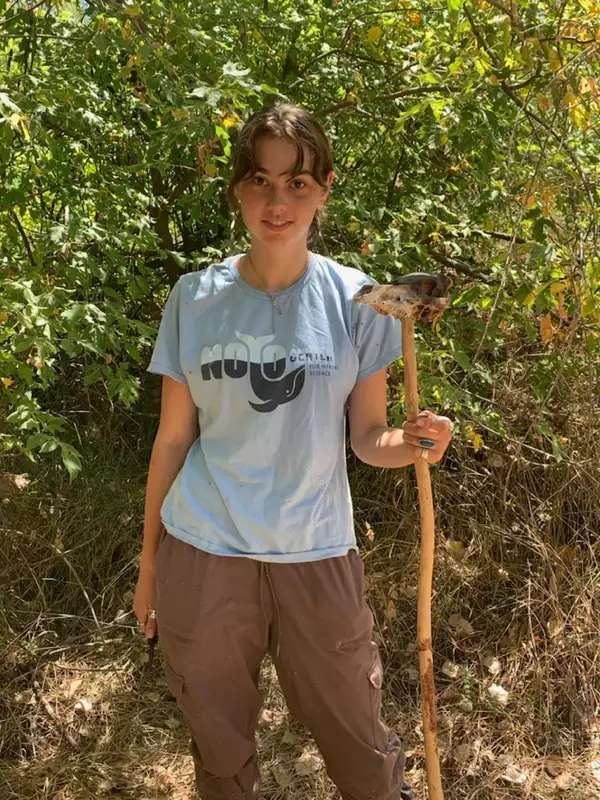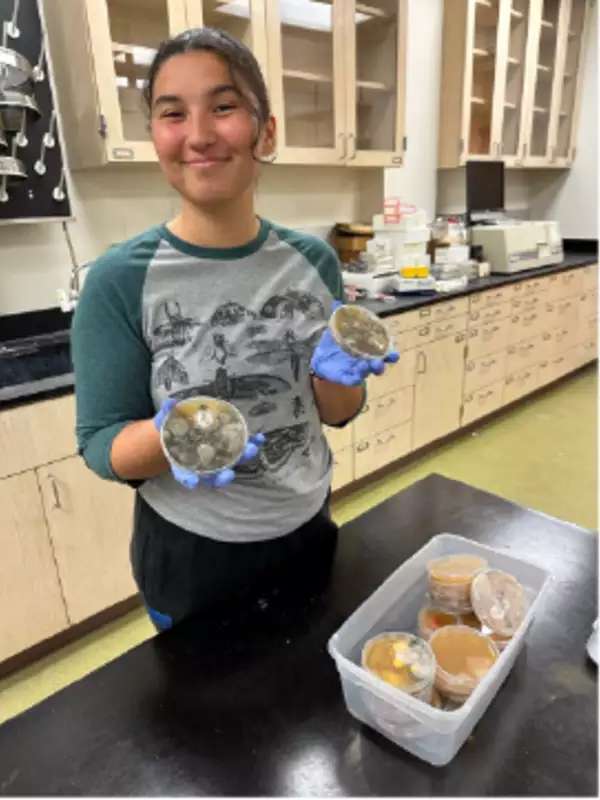Blog post #3 by Lily Davenport
For the last month of my research this summer I began to analyze data and finish up collecting important prey metrics. I still visited mountain lion feeding locations but I additionally aided with blacktail deer incisor extraction. The incisors are used to age the deer which is a crucial metric of this research as we can determine if mountain lions preferentially eat young, adult, or old deer. When we visit feeding locations if the prey item was a deer we would collect the lower jaw to later extract the incisors from. This experience gave me very practical skills for building my career in wildlife research as teeth extractions are often necessary and the data they provide is important to understanding large carnivores.
Near the end of the summer I was also able to present the Living with Lions project to young kids and introduce them to mountain lions as a crucial part of the ecosystem. It was amazing to hear the input and questions that kids had and changed the way that I think about science communication. Communication is a vital part of any research project but I have so often conceptualized it as a research paper or poster presentation. My experience working with kids has broadened my understanding of science communication and given me tools to continue spreading information to younger generations.
I will be using the research I conducted this summer to write my senior thesis. This experience has given me a foundation from which to draw out specific questions that appear important based on my hands-on experience. Additionally, working to collect the data rather than just analyze it has prepared me not only for upcoming courses such as my thesis but also for a career in research. After graduation I hope to continue to work in the field of wildlife research specifically focusing on large carnivores. The experience I have gained by working with a large carnivore project that necessitated my participation in the field has been invaluable. I now not only understand the technical skills required of a field scientist but also the inner workings of a long term research project and the tools necessary to keep it going. Above all, this summer has confirmed to me that wildlife research and conservation, specifically of mountain lions, is a career I am passionate about and hope to pursue after graduation.



